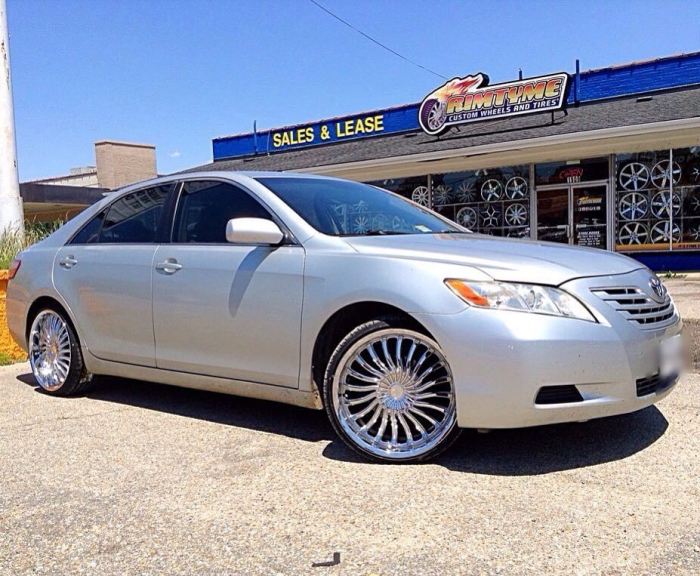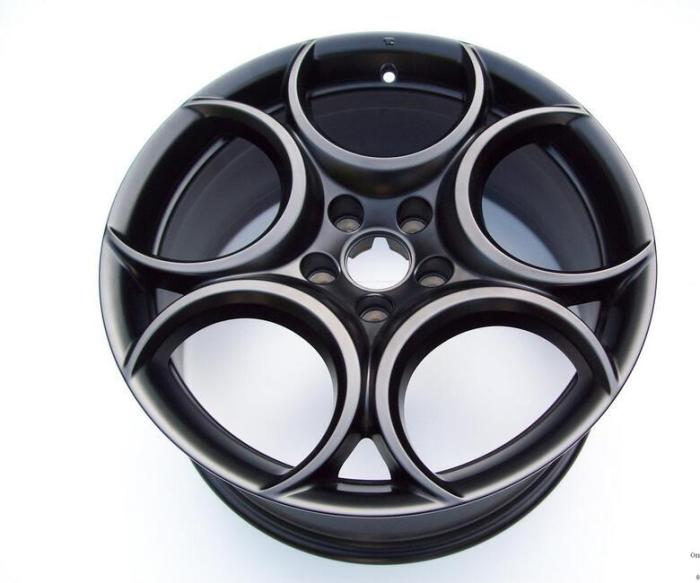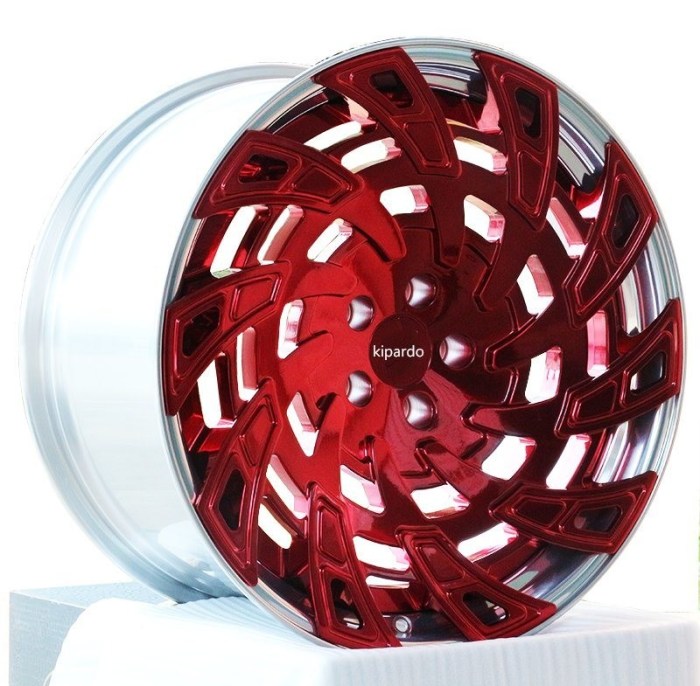Custom rims for cars can transform your ride from ordinary to extraordinary, enhancing not just the look but also the performance of your vehicle. When you think about upgrading your car, custom rims might not be the first thing that comes to mind, but they can significantly impact resale value and overall driving experience. Whether you’re cruising down the highway or showing off at a car meet, these rims make a bold statement and offer a range of benefits that go beyond aesthetics.
From materials like lightweight aluminum to stylish chrome finishes, there’s a whole world of options to consider when choosing custom rims. Understanding different styles and sizes can help you make an informed choice that fits your car and your lifestyle. Plus, with proper maintenance and installation, custom rims can last for years while keeping your vehicle looking sharp and performing at its best.
Importance of Custom Rims: Custom Rims For Cars

Custom rims are not just an upgrade for your vehicle; they are a statement of style and performance. When you choose custom rims, you enhance the overall aesthetic appeal of your car, giving it a unique and personalized look that stands out on the road. Beyond looks, custom rims can significantly improve vehicle performance, including better handling, reduced weight, and increased braking efficiency. In fact, studies have shown that vehicles with high-quality custom rims can experience a 10-15% improvement in performance metrics. Additionally, having custom rims can also boost your vehicle’s resale value, with statistics indicating that cars with upgraded rims can see a price increase of up to 20% at resale.
Types of Custom Rims

There are various materials and styles available for custom rims, each with its unique advantages. The most common materials used include aluminum and steel, which offer different benefits in terms of weight, durability, and cost. Here’s a breakdown of popular rim styles:
- Alloy Rims: Lightweight and excellent for performance.
- Chrome Rims: Offer a shiny, luxurious look but can be heavier.
- Painted Rims: Available in various colors and finishes for a customized appearance.
To assist in selecting the right custom rims for your vehicle, here’s a table listing popular rim sizes for various car types:
| Car Type | Popular Rim Size |
|---|---|
| Sedan | 16-18 inches |
| SUV | 18-20 inches |
| Sports Car | 19-21 inches |
| Pick-Up Truck | 17-20 inches |
Choosing the Right Custom Rims
Selecting the appropriate custom rims requires careful consideration of several factors, including your driving style and the specific model of your car. It’s crucial to understand the importance of bolt patterns and offsets, as these measurements determine how the rims will fit on your vehicle. A mismatch can lead to poor performance or safety issues.
To ensure compatibility between your rims and tires, keep the following guidelines in mind:
- Check your vehicle’s specifications for bolt pattern and offset.
- Choose rims that are designed for your specific tire size.
- Consult with a professional if unsure about compatibility.
Custom Rim Maintenance

Regular cleaning and maintenance of custom rims are essential to keep them looking good and functioning well. Here are some steps for proper rim care:
- Wash rims with soap and water regularly to remove dirt and grime.
- Use a non-abrasive cleaner for stubborn spots.
- Apply a protective wax to maintain shine and prevent corrosion.
Common issues with custom rims include scratches, dents, and corrosion. If you encounter any of these problems, here’s how to address them:
– For scratches, consider using touch-up paint.
– Dents may require professional repair.
– Monitor for any signs of corrosion and treat them promptly.
For safety, here’s a checklist for inspecting custom rims for damage or wear:
- Check for cracks or bends in the rim.
- Inspect for rust or corrosion, especially in steel rims.
- Ensure that the rim is securely mounted and there are no loose bolts.
Installation Process for Custom Rims, Custom rims for cars
Installing custom rims may require specific tools, including a lug wrench, torque wrench, and jack stands. The installation process involves the following steps:
- Lift the vehicle using a jack.
- Remove the existing rims by loosening and taking off the lug nuts.
- Place the custom rims onto the wheel hub, aligning them correctly.
- Tighten the lug nuts by hand before using a torque wrench to secure them to the manufacturer’s specifications.
Safety is paramount during installation. Always ensure the vehicle is secure on jack stands and away from traffic. Wearing safety goggles and gloves can prevent injuries as well.
Cost Considerations for Custom Rims
The cost of custom rims can vary greatly based on several factors, including material, brand, size, and style. Generally, aluminum alloy rims tend to be more expensive than steel rims due to their lightweight and performance benefits. Prices can range from $100 for basic steel rims to over $2,000 for high-end alloy rims.
If budget is a concern, many retailers offer financing options or payment plans, making it more accessible to upgrade your vehicle’s rims without immediate large expenses.
Trends in Custom Rims
Current trends in custom rim designs include unique finishes, bold colors, and innovative shapes. Many car enthusiasts are opting for matte finishes and intricate spoke designs that provide a modern touch to their vehicles.
Technology is playing a significant role in manufacturing custom rims, with advancements such as lightweight materials and more precise machining techniques. This has led to the rise of both traditional and modern rim trends.
Here’s a comparison of traditional vs. modern rim trends in a simple table format:
| Aspect | Traditional Trends | Modern Trends |
|---|---|---|
| Material | Steel | Aluminum, Carbon Fiber |
| Finish | Glossy | Matte, Textured |
| Design | Basic Spokes | Complex Patterns |
Legal Considerations
When modifying vehicle rims, it’s essential to be aware of local regulations regarding such modifications. Many states have specific laws that govern the size and type of rims allowed on vehicles to ensure safety and compliance with vehicle standards.
Improperly installed custom rims can lead to liabilities, including potential accidents or voiding warranties. To maintain compliance with safety standards, consider these tips:
- Consult local laws regarding customization.
- Ensure installation is performed by certified professionals.
- Keep documentation of all modifications made to your vehicle.
Summary
In conclusion, custom rims for cars are more than just a fashion statement; they enhance your vehicle’s performance and can even boost its resale value. As you explore the various types, styles, and maintenance tips, remember that choosing the right rims is crucial for both aesthetics and functionality. Whether you stick with classic designs or opt for the latest trends, custom rims can truly personalize your driving experience and express your unique style.